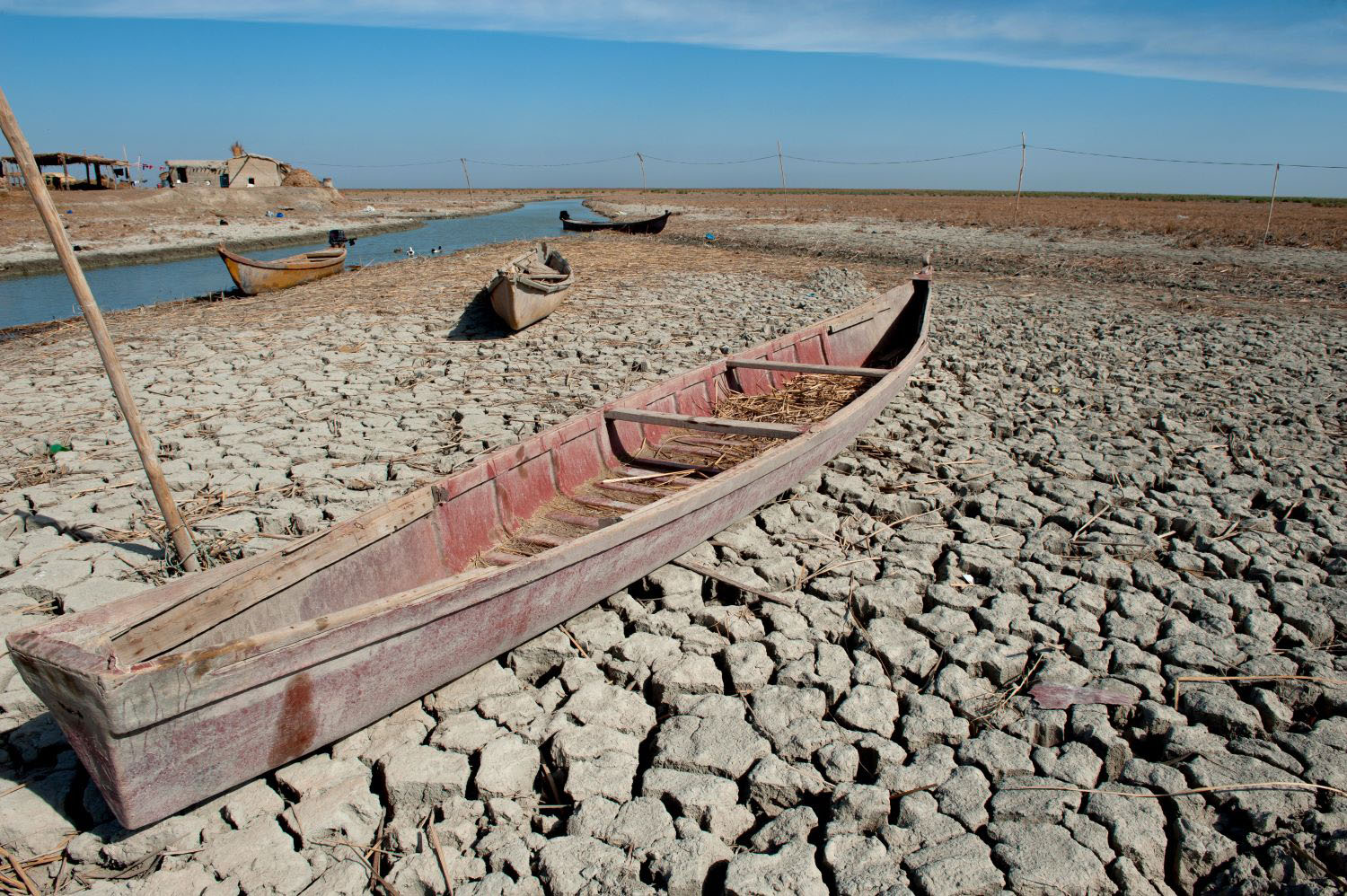Executive Summary
Refugees’ right to work has been repeatedly recognized in international agreements—from the 1951 Convention Relating to the Status of Refugees to the 2018 Global Compact on Refugees—and research continues to demonstrate the benefits of this right for refugees and their host countries alike. Yet most refugees today face significant legal and practical barriers to full economic inclusion in the labor markets of their host countries.[1]
While these barriers are widely discussed in general terms, a systematic, public documentation of these barriers is important to advance the efforts toward economic inclusion. For instance, under Objective 2 of the Global Compact on Refugees, to “enhance refugee self-reliance,” two of the four indicators are the proportion of refugees with access to decent work and the proportion of refugees who are able to move freely within the host country.[2] In addition, advocates and researchers have called for a Refugee Policy Index to factor into funding decisions.[3]
Measuring these indicators, however, is a significant challenge. In its 2021 Indicator Report, the United Nations High Commissioner for Refugees (UNHCR) notes that “there is a need to strengthen the measurement of decent work, including by . . . developing the measurement of de facto access to work (e.g., using household surveys).”[4] We view this report and accompanying dataset as contributing to this effort.
In this project, produced by researchers at the Center for Global Development (CGD), Asylum Access, and Refugees International, we assess refugees’ work rights across the globe. We examine different dimensions of work rights both in law (de jure) and in practice (de facto) across 51 countries that were collectively hosting 87 percent of the world’s refugee population at the end of 2021. Combining legal documents, country-level reports, news articles, and input from more than 200 practitioners with knowledge of refugees’ livelihoods and use of services, we evaluate the de jure and de facto situation within a standardized framework. We believe that the findings and accompanying dataset will be critical tools for policymakers, practitioners, and researchers on refugees’ work rights.
Main findings
-
Every country in this study imposes barriers to refugees’ work rights in practice.
-
There is a stark difference between refugees’ overall work rights in law and in practice.
-
At least 62 percent of refugees live in countries where the legal framework for work rights is adequate or better (a 4 or 5 on our five-point scale).
-
Yet many of these laws are not widely implemented: at least 55 percent of refugees live in a country that significantly restricts their work rights in practice (a 3 or below on our scale), and at least 19 percent of refugees live in a country that severely restricts their right to work in practice (scoring a 1 or 2). This represents at least 16 million and 5.5 million people, respectively.
-
-
High-income countries often offer strong work rights—both de jure and de facto—to recognized refugees. However, they also prevent access to these work rights in practice by significantly limiting refugee status (i.e., asylum), restricting the work rights of asylum seekers, and limiting the territorial access of would-be asylum seekers in some cases. Other countries that offer strong de jure work rights frequently fail to issue the necessary work or business permits to refugees specifically or impose other administrative or enforcement barriers.
-
While the law is not enough to guarantee refugees’ right to work, it is oftentimes a necessary starting point: de jure and de facto scores are strongly correlated, and only 3 of the 19 countries that have adequate access in practice do not have adequate access in law.
-
Amid hope for the Global Compact on Refugees and fear over the impact of COVID-19, we do not see a significant net change in the right to work over the last five years. Approximately 28 percent of the global refugee population lives in a country where access to wage employment in practice has improved, while 29 percent lives in a country where it has worsened.
-
We also study additional factors that are critical to refugees’ work rights and economic inclusion in practice, such as access to services and documentation.
-
Education is the most accessible factor in our data: at least 64 percent of refugees live in countries that provide adequate access to basic schooling in practice, with similar access—for at least 60 percent of the refugee population—to secondary school.
-
In contrast, formal financial services and credential certification are the least accessible factors: only 2 percent of the refugee population live in countries with adequate access to formal financial services, and only 11 percent can generally certify academic and professional credentials from their country of origin.
-
Our de jure findings are based on analyses of national, regional, and international law that mandate the work conditions in host countries for people who have been forcibly displaced. Our de facto findings are based on a survey of practitioners in the 51 refugee-hosting countries, as well as supplemental desk research. Countries were scored on questions regarding wage employment, self-employment, mobility, and access to services, in most cases relative to host-country citizens’ access. We use a government’s treatment of its citizens as the benchmark in order to isolate the discrimination faced by refugees in particular.
Our focus is on the actions (or inactions) of host governments. Our aim is to catalog issues such as an inability to access work or business permits, the potential for fines or arrest while traveling or living outside a camp, or differential enforcement of labor protections for refugees relative to host-country citizens. These are practices that are under the direct control of governments and specific to refugees. They contribute to, but are distinct from, self-reliance outcomes such as employment or wages, where poor outcomes, or even differences between host communities and refugees, do not necessarily signal government barriers.
Both access to and rights within the labor market are important to refugees, enabling them to support themselves and their families, build their skills, and contribute to their host country during periods of displacement. Refugees’ labor market access also benefits host communities on net, opening new employment avenues for host workers, generating additional consumer spending, and expanding the tax base, oftentimes without displacing host workers. The full benefits can only be achieved, however, if refugees can work without sector or geographic limits, move freely, and enjoy robust protections both in law and in practice.
Our findings encompass many factors that influence equitable labor market access (see Box 2 for terminology). In the following sections, we review the results of our de jure research and de facto survey; analyze how labor market access interacts with country characteristics such as the number of refugees hosted and political systems; and, in Part 2, provide narrative summaries for each of the 51 countries’ laws and environments in practice.
Recommendations
We also provide a series of recommendations targeted at both refugee-hosting countries and donors that would reduce the many barriers identified in our data.
Refugee-hosting countries should:
-
Ensure that domestic laws grant refugees the right to work and freedom of movement, and that these rights are upheld in practice. Refugees should be included as constituents in work rights policymaking and accountability mechanisms.
-
Automatically include the right to work and freedom of movement as integral aspects of refugee status and state these rights clearly on documentation issued to refugees. Requiring separate work permits creates an unnecessary barrier that adds bureaucratic delays and sows confusion among employers and refugees alike.
-
Safeguard refugees’ rights at work through enforcement and support legal aid for refugees who experience workplace violations.
Donors should:
-
Incentivize host governments to expand refugees’ right to work. Some concessional funding should be tied to policies and implementation of refugees’ rights. Initiatives like the World Bank’s IDA19 Window for Refugees and Host Communities, which is accompanied by a framework to document each host country’s progress on refugees’ rights, should be strengthened and expanded.
-
Strengthen accountability mechanisms for Global Refugee Forum pledges and involve experts (including refugees) in designing and implementing these accountability mechanisms.
-
Support local organizations advocating for refugees’ work rights.
-
Provide support to host communities in addition to refugees. While most research finds refugees have small average effects on hosts’ economic outcomes, some groups can be negatively affected. External support can mitigate negative effects and reduce opposition to labor market access for refugees.[5]
[1] In this report, we use the term “refugees” as shorthand to refer to all foreign-born people forcibly displaced by persecution or conflict and their descendants who are not citizens. Please see Box 1 in the report for more information.
[2] UNHCR, Global Compact on Refugees: Indicator Report (Geneva: UNHCR, 2021), 5, https://www.unhcr.org/global-compact-refugees-indicator-report/wp-content/uploads/sites/143/2021/11/2021_GCR-Indicator-Report_spread_web.pdf.
[3] Lauren Post, Cindy Huang, and Sarah Charles, World Bank Financing to Support Refugees and Their Hosts: Recommendations for IDA19 (Washington, DC: Center for Global Development, 2019), https://www.cgdev.org/publication/world-bank-financing-support-refugees-and-their-hosts-recommendations-ida19.
[4] UNHCR, Global Compact on Refugees: Indicator Report (Geneva: UNHCR, 2021), 70, https://www.unhcr.org/global-compact-refugees-indicator-report/wp-content/uploads/sites/143/2021/11/2021_GCR-Indicator-Report_spread_web.pdf.
[5] Travis Baseler, Thomas Ginn, Robert Hakiza, Helidah Ogude, and Olivia Woldemikael. “Can Aid Change Attitudes toward Refugees? Experimental Evidence from Uganda”, 2022, https://www.jointdatacenter.org/wp-content/uploads/2022/01/Baseler-et-al.-Uganda-Attitudes.pdf.
Rights & Permissions
You may use and disseminate CGD’s publications under these conditions.







